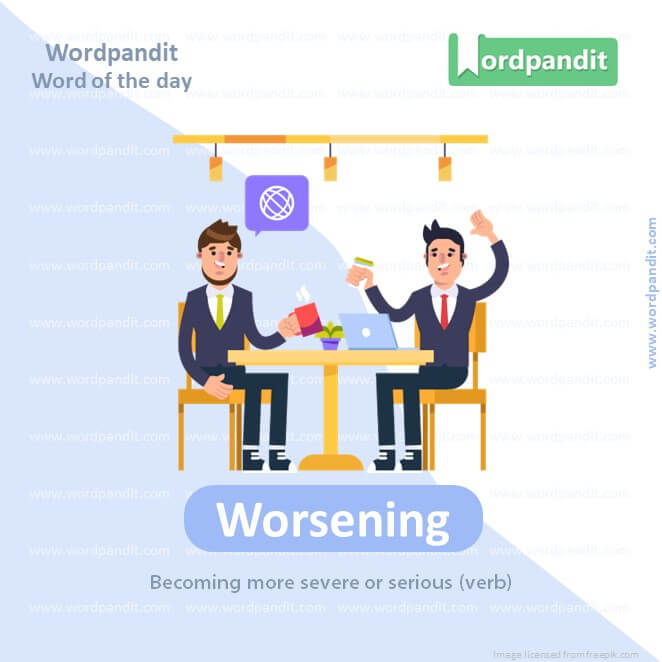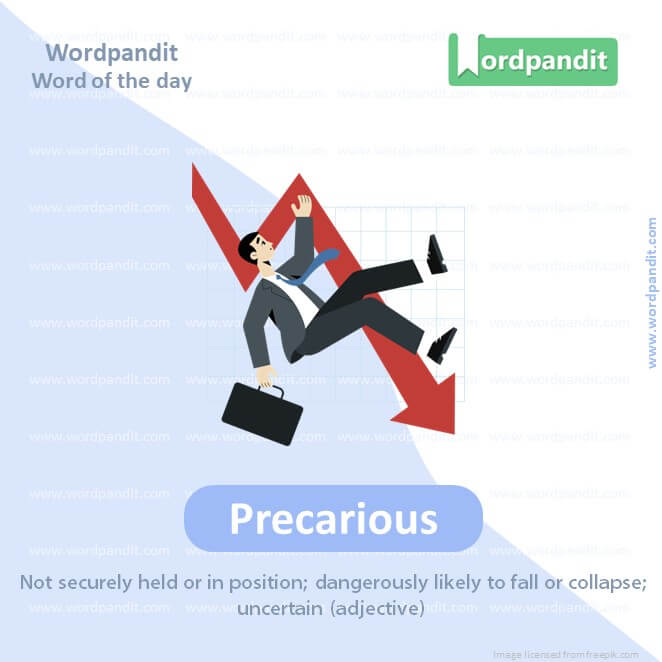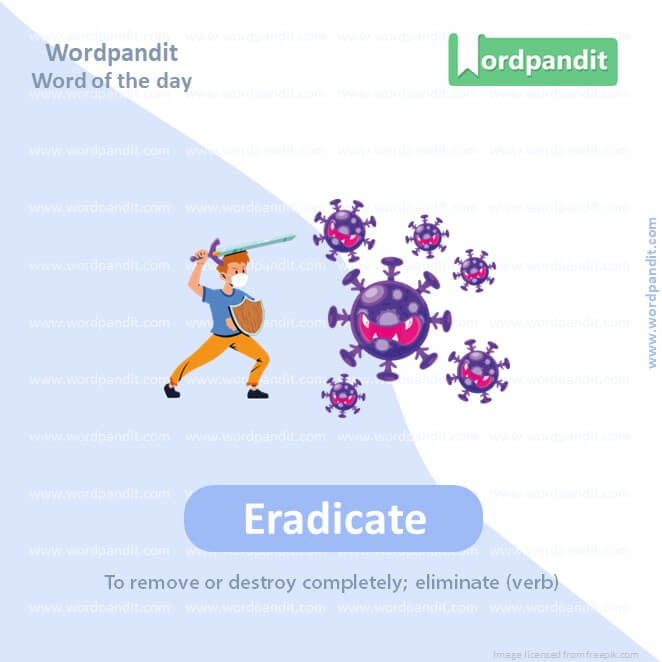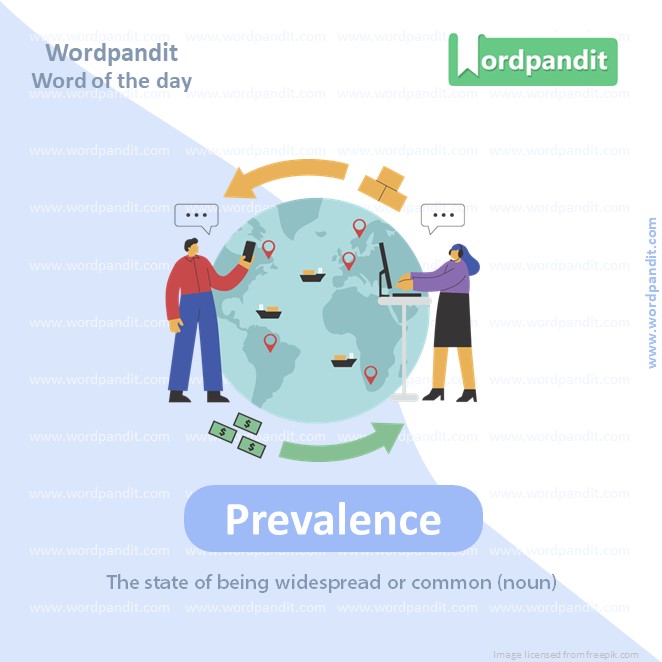Daily Vocabulary Words: List of Daily Used Words
Hi there. Welcome to this special section @ Wordpandit.
Our endeavour here is straightforward: highlighting important daily vocabulary words, you would encounter in The Hindu. This is your repository of commonly used words; essentially, we are posting a list of daily used words. Hence, this has significant practical application as it teaches you words that are commonly used in a leading publication such as The Hindu.
Visit the website daily to learn words from The Hindu.
WORD-1: Segments
CONTEXT: The informally employed are primarily concentrated among casual labourers and the self-employed, but exist even in some segments of those who are classified as regular wage or salaried workers.
SOURCE: The
EXPLANATORY PARAGRAPH: Imagine you have a big chocolate bar, and you break it into smaller pieces so that you can share it with your friends. Each small piece of that big chocolate bar is like a segment. It’s just a part of the whole thing. So, when we talk about segments, we’re talking about parts of something bigger.
MEANING: A part of something that is separate from the other parts (noun).
PRONUNCIATION: SEG-ments
SYNONYMS: Portions, Sections, Pieces, Parts, Fractions
USAGE EXAMPLES:
1. The teacher divided the class into segments for group work.
2. The orange was peeled and broken into segments.
3. The report is divided into several segments, each focusing on a different issue.
4. The road was constructed in segments over several years.
WORD-2: Glance
CONTEXT: At first glance it would seem that things have improved in the recent past for which we have yearly data from the Periodic Labour Force Survey (PLFS), beginning 2017-18.
SOURCE:
EXPLANATORY PARAGRAPH: Imagine you’re playing outside and you quickly look at the sky to see if it’s going to rain, but you don’t stop playing, you just look up for a second. That quick look is called a glance. You didn’t stare or look for a long time, just a very quick peek.
MEANING: To look at something quickly (verb).
PRONUNCIATION: glans
SYNONYMS: Peek, Glimpse, Brief look, Skim, Scan
USAGE EXAMPLES:
1. She took a glance at her watch to check the time.
2. At first glance, the problem seemed easy.
3. He threw a nervous glance towards the door.
4. With a quick glance, she realized she was in the wrong room.
WORD-3: Dynamism
CONTEXT: Do these improvements signal dynamism in the labour market in terms of job creation and wage growth.
SOURCE:
EXPLANATORY PARAGRAPH: Think about your favorite superhero who is always moving, saving people, and doing exciting things. That energy and ability to keep doing amazing things is called dynamism. It’s like having a superpower of never getting tired and always being ready for action.
MEANING: The quality of being energetic and forceful (noun).
PRONUNCIATION: DYE-nuh-miz-um
SYNONYMS: Energy, Vigor, Vitality, Forcefulness, Zest
USAGE EXAMPLES:
1. The new manager brought a lot of dynamism to the team.
2. Her speech was full of dynamism and inspired everyone.
3. The dynamism of the city is evident in its rapid development.
4. The company is known for its dynamism and innovation.

WORD-4: Worsening
CONTEXT: this reflects a worsening of the quality of work being done by the workforce.
SOURCE:
EXPLANATORY PARAGRAPH: Imagine you have a small cut on your hand, and instead of putting a bandage on it, you keep playing in the mud. The cut might get more painful and look worse. When something gets worse like this, we say it is worsening. It means it’s not getting better, but actually becoming more bad.
MEANING: Becoming more severe or serious (verb)
PRONUNCIATION: WUR-suh-ning
SYNONYMS: Deteriorating, Declining, Degenerating, Exacerbating, Degradation
USAGE EXAMPLES:
1. The weather is worsening, so we should head back home.
2. Her health has been worsening over the past few weeks.
3. Signs of worsening economic conditions are evident.
4. The traffic situation in the city is worsening by the day.

WORD-5: Precarious
CONTEXT: a category which itself is considered to be a main component of informal employment and, therefore, precarious in nature — it is cause for worry.
SOURCE:
EXPLANATORY PARAGRAPH: Imagine you’re balancing on one foot, trying not to fall. You might feel like you could tip over at any moment. That feeling of possibly falling is what precarious means. Something that is precarious seems like it could quickly become dangerous or unstable.
MEANING: Not securely held or in position; dangerously likely to fall or collapse(adjective)
PRONUNCIATION: preh-KAIR-ee-us
SYNONYMS: Unstable, Risky, Insecure, Uncertain, Dangerous
USAGE EXAMPLES:
1. The climber was in a precarious position on the cliff.
2. The economy is in a precarious state right now.
3. He placed the vase in a precarious spot on the edge of the table.
4. Their financial situation is becoming increasingly precarious.“`
WORD-6: Stagnated
CONTEXT: The average daily earnings for both the salaried and the self-employed stagnated over the period, showing no increase in real terms.
SOURCE:
EXPLANATORY PARAGRAPH: Imagine a pond where the water doesn’t move; it just sits there without flowing or changing. After a while, it might start to look dirty and smell bad because it’s not fresh anymore. When something doesn’t grow, change, or move, we say it has stagnated. It’s like when water stops flowing and starts to get yucky.
MEANING: Ceased to flow or move; stopped growing or developing (verb).
PRONUNCIATION: STAG-nay-ted
SYNONYMS: Stalled, Stilled, Halted, Idle, Motionless
USAGE EXAMPLES:
1. The water in the pond stagnated during the hot summer months.
2. Economic growth has stagnated in recent years.
3. Without new ideas, the project stagnated.
4. The conversation stagnated after running out of topics to discuss.

WORD-7: Discernible
CONTEXT: the earnings for the self-employed did not record any discernible improvements.
SOURCE:
EXPLANATORY PARAGRAPH: Imagine you’re looking at two cookies, and one has tiny sprinkles on it. You can see the difference because of those sprinkles. When you can notice something or see that it’s different, we say it is discernible. It’s like being able to tell apart two things because there’s something that makes one stand out from the other.
MEANING: Able to be seen, recognized, or understood; noticeable (adjective)
PRONUNCIATION: dih-SUR-nuh-bul
SYNONYMS: Detectable, Apparent, Perceptible, Visible, Observable
USAGE EXAMPLES:
1. There was a discernible difference in quality between the two products.
2. Only a discernible improvement was seen after the treatment.
3. The chef’s skill was discernible in the presentation of the dish.
4. A discernible pattern emerged from the data analysis.

WORD-8: Eradicate
CONTEXT: These targets represent milestones in the global effort to eradicate cervical cancer and highlight the pivotal role of India’s call for HPV vaccination in achieving this goal.
SOURCE:
EXPLANATORY PARAGRAPH: Imagine there are weeds in a garden that are not good for the flowers. If you pull out all those weeds so none are left, you’re getting rid of them completely. Eradicate means to remove or destroy something totally, like how you removed all the weeds so the garden can be healthy.
MEANING: To remove or destroy completely; eliminate (verb)
PRONUNCIATION: ih-RAD-i-kate
SYNONYMS: Eliminate, Exterminate, Abolish, Wipe out, Extinguish
USAGE EXAMPLES:
1. The program aims to eradicate poverty in the region.
2. Scientists are working to eradicate the disease.
3. Efforts to eradicate invasive species from the island are ongoing.
4. The new policy seeks to eradicate corruption.

WORD-9: Prevalence
CONTEXT: the successful HPV vaccination campaign in Rwanda, Africa, has significantly reduced the prevalence of vaccine-targeted HPV types, particularly among women who participated in their catch-up programme in 2011.
SOURCE:
EXPLANATORY PARAGRAPH: Imagine you have a favorite game that almost everyone in your school loves to play. Because so many people are playing it, we say that the game has a high prevalence. Prevalence means how common something is or how much it’s found within a particular area or among a group of people.
MEANING: The state of being widespread or common (noun)
PRONUNCIATION: PREV-uh-lence
SYNONYMS: Commonness, Widespreadness, Ubiquity, Frequency, Pervasiveness
USAGE EXAMPLES:
1. The prevalence of smartphones has increased dramatically.
2. Studies show the high prevalence of heart disease in the area.
3. There is a growing prevalence of online learning platforms.
4. The survey indicated the prevalence of that opinion among the population.
WORD-10: Tackling
CONTEXT: These global success stories underscore the importance of prioritising vaccination for tackling cervical cancer.
SOURCE:
EXPLANATORY PARAGRAPH: Imagine you’re playing a game where you have to stop someone from running past you by grabbing them gently and safely. That’s called tackling. It’s when you deal with something or someone directly to solve a problem or stop them. In games, it’s about stopping the other player, and in real life, it can be about solving problems.
MEANING: To confront or take on a challenge or problem (verb).
PRONUNCIATION: TAK-ling
SYNONYMS: Addressing, Confronting, Taking on, Dealing with, Attacking
USAGE EXAMPLES:
1. The team is tackling the project with great enthusiasm.
2. She’s tackling the issue head-on with a new strategy.
3. The government announced plans for tackling unemployment.
4. Tackling climate change requires global cooperation.
Vocabulary Importance
In the realm of language learning, understanding ‘vocabulary importance’ is a fundamental concept. Words are the building blocks of language and a rich vocabulary fuels effective and persuasive communication. However, embracing ‘vocabulary importance’ involves more than just acknowledging its role – it requires you to integrate it into your learning strategy.
To truly grasp ‘vocabulary importance’, expose yourself to a variety of reading and listening activities. Whether it’s reading novels, engaging with podcasts, or watching films in your the profound impact of having a robust vocabulary arsenal and will illuminate the practical ‘vocabulary importance.’
Additionally, recognizing ‘vocabulary importance’ necessitates an active approach to vocabulary acquisition. Regularly dedicate time to learning new words. Use flashcards, word lists, language apps, or even set a ‘word of the day’ to maintain a steady flow of vocabulary learning.
Incorporating the learnt vocabulary into your speech and writing is non-negotiable when understanding ‘vocabulary importance’. Regular usage not only enhances vocabulary retention, but it also uncovers the magic of eloquent expression that a blossoming vocabulary can yield.
It’s also beneficial to lean on memory aids in recognizing ‘vocabulary importance’. Associating words with images, stories or personal anecdotes creates strong memory hooks, enhancing vocabulary recall and solidifying the understanding of ‘vocabulary importance’.
To sum it up, ‘vocabulary importance’ is not just a theory to be noted, but a mantra to be embraced in your language learning journey. Engage with a wide variety of resources, actively learn and use new words, and utilize effective recall techniques. As you uncover the depths of ‘vocabulary importance’, you’ll realize that every new word is a fresh shade on your language palette, painting your communication canvas with hues of eloquence, clarity, and confidence.











